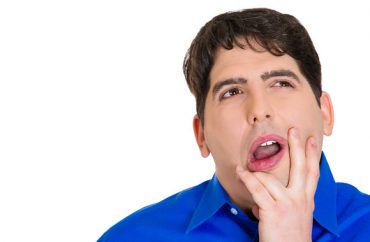
A Princeton University student believes that, the pesky First Amendment notwithstanding, offensive speech should be restricted because it really is … an action.
Comparative literature major Chang Che apparently thinks just because he’s read J.L. Austin’s How To Do Things With Words it should magically apply to a couple of centuries of free speech jurisprudence.
Writing in The Daily Princetonian, Che says “America’s constitutional interest in free speech has come in direct opposition to its reservations toward ‘hate speech,'” and that “in a country with diverse religious, ethnic, and economic groups, some choice words can undermine our ideal of an accepting society.
“How, then, can we reconcile this fundamental right as granted by our Founding Fathers with the increasingly pertinent need to question our choice of words?”
Here’s how: Just equate words with actions.
Before you gasp “HUH?” Che explains:
The modern discourse of political correctness has exposed a fundamental ambiguity in the language of our founding fathers, an ambiguity that philosophy has been attuned to since the Middle Ages — such as in St. Augustine’s “On Lying” — and formalized by J.L. Austin in his seminal work “How To Do Things With Words.” The ambiguity concerns the dualistic dimensions of speech: as a mode of expression and as a mode of action. While modern discourses surrounding the First Amendment equate freedom of speech with freedom of expression — assuming that speech is primarily used as a mode of expressing one’s ideas — expression is but one function of speech. And in the context of harming others with language, it has overshadowed another equally important nature of language: the speech act.
Austin defines the speech act as speech that performs some sort of action in lieu of, or in addition to, its conventional meaning. For example, the utterance “I promise” not only refers to the act of promising but is, itself, the very condition by which that action is achieved — I make a promise by merely uttering the words “I promise.” …
Speech, therefore, is not only a mode of communication, but also one of action. And in the context of discriminatory language, these acts can be particularly invidious. The constitutional right to free speech, one that is generally understood as the right to articulate one’s opinions and ideas, then, does not and should not encompass harmful speech acts. Since these types of speech primarily serve as actions, they should be evaluated as such, rather than under the First Amendment, which protects against freedom of speech as expression.
As an example, Che advises considering the words “gay” and “faggot.” Although both “refer to the same type of individual,” the latter “does much more than the conventional use of language as expression — it has a distinct act: the act of demonizing, abnormalizing, or stigmatizing that particular identity.”
He also says there’s something wrong when you can be punished for shoplifting, but not for “characterizing Mexicans as ‘rapists.'”
“It’s time we abandon the assumption that actions speak louder than words because, more often than not, words do more than actions,” Che concludes.
Let’s just cut to the chase: This type of nonsense postmodern wordsmithing is no different from that of the Critical Race Theorists who, among other things, believe our basic freedoms should be subject to people’s feelings … as well as their past degree of marginalization and oppression.
MORE: Critical race theory and free speech limits based on feelings
MORE: Free speech ‘sliding scale’ on display at UW Madison
MORE: College students’ views on free speech are … rather worrisome
Like The College Fix on Facebook / Follow us on Twitter
IMAGE: Shutterstock






Please join the conversation about our stories on Facebook, Twitter, Instagram, Reddit, MeWe, Rumble, Gab, Minds and Gettr.